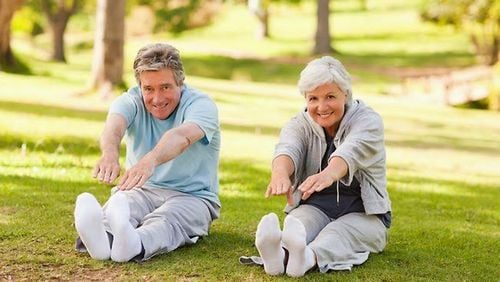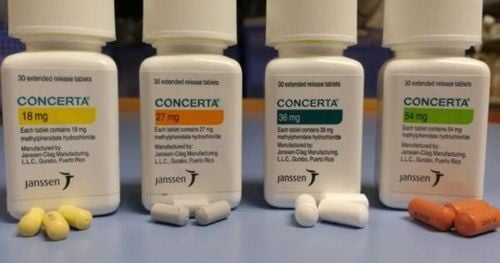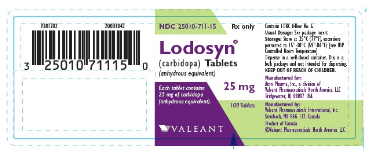This is an automatically translated article.
The article was professionally consulted by MSc Nguyen Minh Quyet - Psychological consultant, Psychological Clinic, Vinmec Times City International General Hospital.Sleep disturbance is a common symptom in all age groups, occurring more often in women than in men, especially in the elderly. In our country, the trend of sleep disorders has increased rapidly in the elderly in recent years.
1. Diagnosis of sleep disorders in the elderly
Sleep disorders in the elderly often have 2 types: insomnia and sleep disturbance.
1.1. Insomnia in the elderly This is a condition in which the elderly sleep less than 4 hours at night or in situations where it is difficult to fall asleep slowly, sleep very late, or fall asleep easily but wake up early, then tossing all night. Daytime tired, sluggish, do not want to do anything.
The cause of insomnia may be due to the quiet surroundings, the use of stimulating substances before sleeping such as tea, coffee, coca or some other drugs used to treat diseases. Some people have a habit of drinking alcohol before bed or taking long-term tranquilizers but stopping suddenly can also experience insomnia. People who have a lot of idle time, lazy mental workers are also very prone to insomnia. In addition, chronic pain in muscles, bones, joints, nocturnal allergies, difficulty breathing, sleep apnea, leg cramps during sleep, cases of cardiac arrhythmias, heart failure and disorders of the road Digestive problems such as reflux esophagitis or urinary tract problems such as frequent urination at night, side effects of some other classes of drugs that affect the central nervous system, penetrate the blood-brain barrier and cause sleep disturbance. In middle-aged and elderly people, depression can be a cause of insomnia, especially in the early morning. Long-term chronic anxiety can also cause insomnia and trigger nightmares during rapid sleep.
1.2. Sleep disturbance Sleep disturbance is a phenomenon of not being able to sleep at night but sleeping a lot during the day, common in the elderly due to dysfunction in brain activity during aging or after a vascular accident. brain, after a severe illness...
2. Treatment of sleep disorders in the elderly
Stay away from stimulants Avoid caffeinated beverages (coffee, many teas, chocolate and some soft drinks) after 1 or 2 pm, or not at all if you are particularly sensitive with caffeine. Caffeine blocks the effects of adenosine, a substance the brain secretes to promote sleep. Limit alcohol consumption, no more than 1 drink/day, preferably no more than 2 hours before bedtime. Alcohol interferes with deep sleep and can interfere with breathing. Stop smoking and avoid secondhand smoke. Nicotine makes it difficult to fall asleep and stay asleep.
Take a short nap If it is not possible to stay awake in the afternoon, the elderly should take a short nap of 15-20 minutes, which is long enough to improve alertness but not too long to feel groggy. Later.
Exercise Starting regular exercise like walking, jogging or swimming can help you fall asleep faster, sleep more deeply, and wake up less often during the night. However, avoid exercising within a few hours of bedtime.

Tập thể dục hằng ngày giúp giấc ngủ sâu và ngon hơn
Establish a scientific sleep schedule A regular bedtime will help synchronize the sleep/wake cycle. You need to determine how long it is to sleep well, go to bed each night and wake up in the morning at the same time repeating every day.
Make the bedroom a private place Before sleeping, elderly people should meditate and read, keep the bedroom cool, dark and quiet, the bed and mattress are comfortable.
Eat right Need to finish dinner a few hours before going to bed, if need a snack in the evening, you can eat a little easy to digest food such as: apple, yogurt, cereal, milk or bread baked and jam.
Do not watch the clock Watching the minutes pass makes it more difficult for the elderly to fall back to sleep. Turn the watch face so you can't see it.
Establish a relaxation routine before bed Meditate, listen to relaxing music before bed. Avoid activities that can cause stress, such as discussing work or discussing heated issues.
Limit drinking water before going to sleep Minimize nighttime urination that disrupts sleep. Do not drink any kind of water for 2 or 3 hours before going to sleep. If you have persistent sleep disturbances, do not adjust. With the above-mentioned lifestyle changes, especially daytime sleepiness, the elderly need to see specialists for advice. After ruling out medical or psychiatric causes, your doctor will recommend the best method to deal with insomnia.
3. Sleep disorder treatment at Vinmec Times City Psychological Clinic

Các bác sĩ của Phòng khám Tâm lý, Bệnh viện Đa khoa Quốc tế Vinmec Times City
Psychological Clinic - Vinmec Times City International General Hospital is an address for examination, counseling and outpatient treatment of psychological and health problems for the elderly. With modern equipment, Vinmec Psychological Clinic is currently cooperating with experienced professors and experts:
MSc. Doctor Nguyen Van Phi MSc. Doctor Pham Thanh Luan MSc. Doctor Nguyen Trong Hien Master, Doctor Nguyen Minh Quyet Master, Doctor Nguyen Thanh Long Master, Doctor Nguyen Thi Hoa Together with the implementation of psychological tests, intensive psychotherapy serving diagnosis and treatment, in order to bring the best medical examination and treatment effect.
Please dial HOTLINE for more information or register for an appointment HERE. Download MyVinmec app to make appointments faster and to manage your bookings easily.













